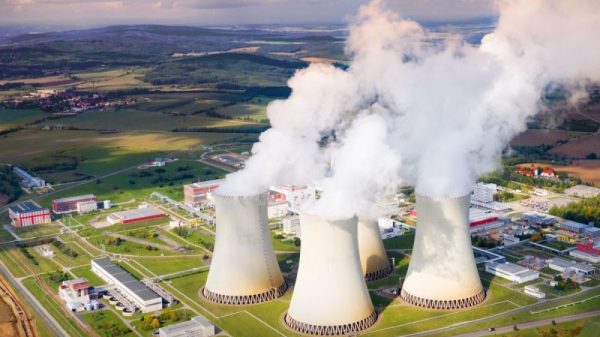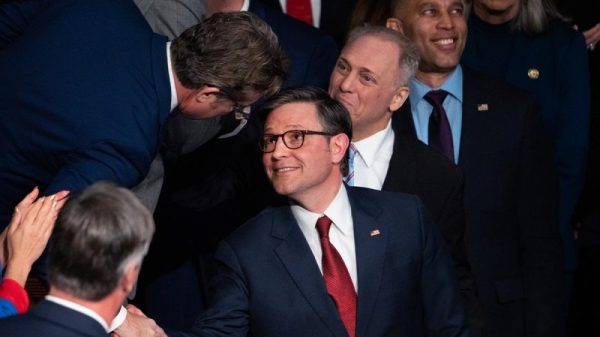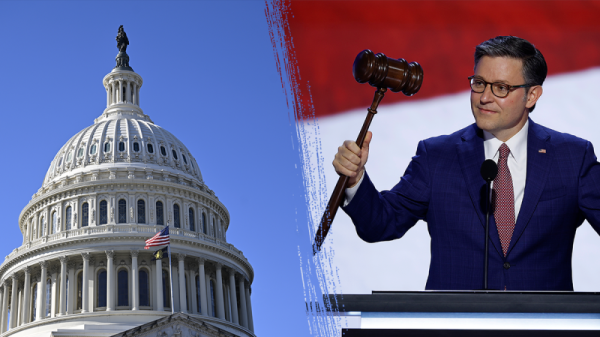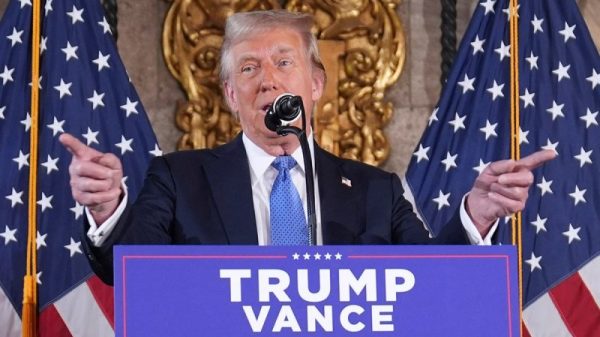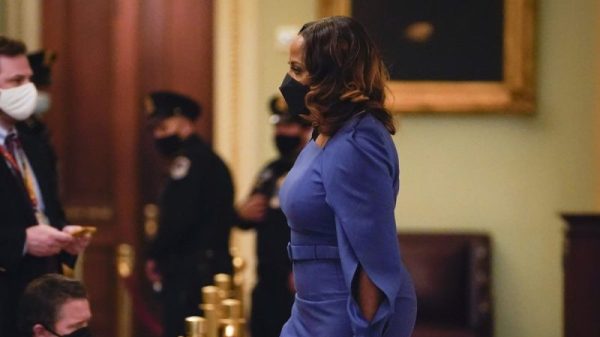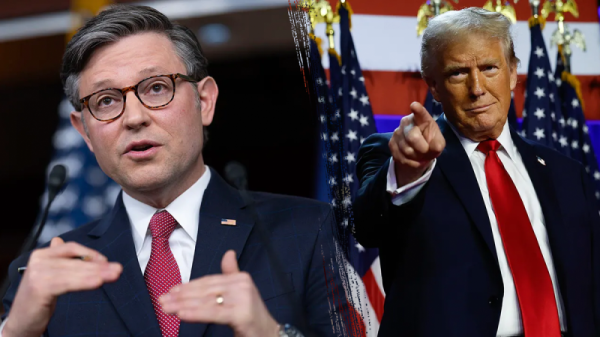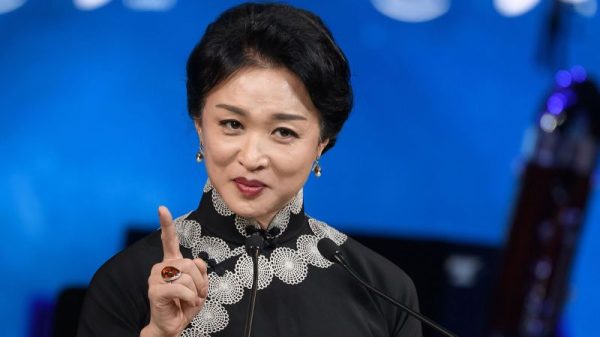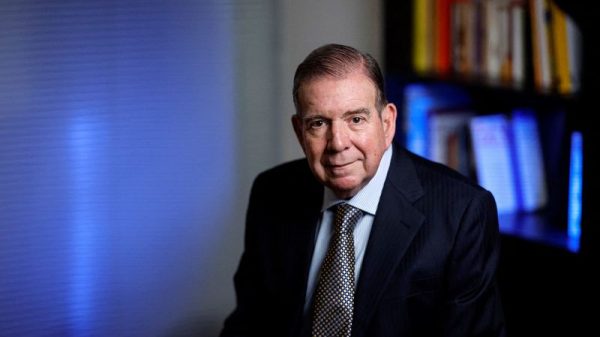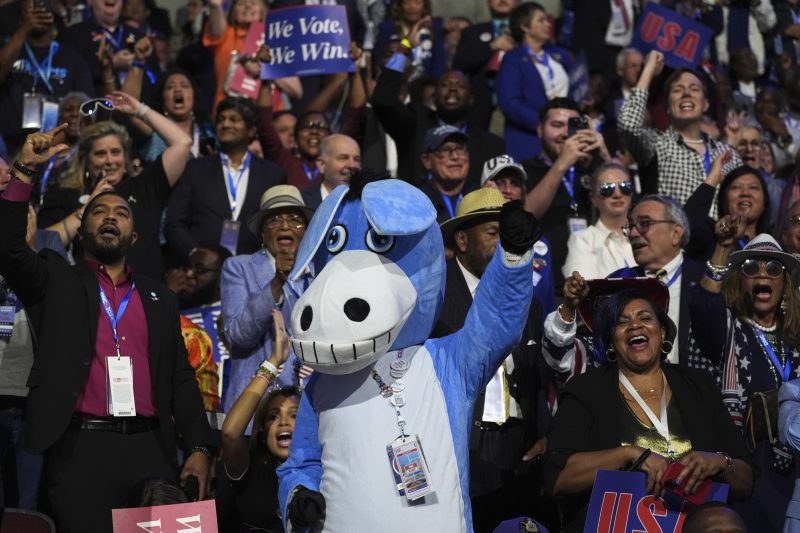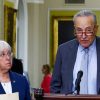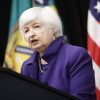The optimist might look at President Joe Biden’s speech on the first night of the Democratic convention and note that the sitting president was presented with the opportunity to speak on two nights. That is, if you choose to look at his late start and subsequent spilling over past midnight Eastern as somehow a tribute to the party’s eldest statesman.
For some observers rooted in the conventions of conventions and the patterns of politics, Biden taking the stage at 11:30 was a slight, an intentional sidelining of a president the party was eager to discard. It’s an archaic way of considering a political speech in the social media era, in the era where few Americans are setting aside time to watch the parties’ conventions. But it was a way of contextualizing the Democratic convention within expected patterns — after the convention’s first night otherwise demonstrated the party’s sudden and recent break with its immediate past.
Those same observers had their ears tuned for indications of bitterness from Biden, the president who one month ago would have been expected to give the acceptance speech on Thursday, not a transitional speech on Monday. But the only bitterness Biden offered was to an unfriendly media and to the Republican nominee, Donald Trump. Biden, who once pledged to be a bridge to a new generation of leadership, understood that this task had arrived sooner than he might have liked and he fulfilled the role dutifully. He championed Vice President Kamala Harris and her running mate, Minnesota Gov. Tim Walz (D), and pledged to work for their election.
His arrival at the lectern was met with boisterous, lengthy applause, a recognition of his long service to the party and of a presidency that Democrats view with legitimate appreciation and admiration. But it was also clearly a celebration of the way in which the Democrats’ chances and energy were reversed on July 21, when he announced that he would stand aside in favor of Harris. The applause was clearly an appreciation for both of those elements of his leadership.
His speech was, in large part, a reminder of why so many in his party were not unhappy that he opted not to seek another term. Biden delineated his administration’s accomplishments and inveighed against the threat Trump poses to American democracy. It was dire and often dour and a noticeable divergence from the spirit that animated much of the rest of the evening, which was often pointed in its denunciations of Trump, certainly, but with eagerness and energy. Biden’s presentation addressed a looming threat. The rest of the night was about how Democrats were about to gleefully stamp out that threat entirely.
It would have been hard to predict this first night of the convention a month ago. Then, Biden was trailing Trump in the polls and Harris was faring only slightly better. Biden resisted stepping aside in part because polling didn’t suggest that his chances of beating Trump were that much worse than anyone else’s. When he announced his withdrawal, though, it was as though Democrats suddenly threw off a heavy blanket. Trump and the right went from wolves stalking the woods to something more akin to the goofy hyenas in “The Lion King.”
This shift is noticeable in many ways, few as stark as the shifts in polling on candidate favorability. On July 21, 538’s average of polls had Trump’s favorability 12 points underwater (meaning his unfavorable rating was 12 points higher than his favorability). Biden was 18 points underwater; Harris, 15 points. Since then? Trump’s numbers improved while Biden’s — sort of strangely! — didn’t change much at all.
Harris’s have improved quickly and steadily.
The last time a presidential candidate saw such a dramatic and rapid turnaround in favorability as Harris has was in 2015. Then it was Trump, who was viewed as a lark by Republicans before his candidacy was announced but whose rejection of the status quo and the patterns of Republican campaigning quickly shifted his party’s view of him as a candidate and a person. In the past month, Harris has seen her own shift for similar reasons: Here was someone breaking with the unhappy and unexciting way in which things had been done.
One can’t draw equivalence between Harris and Trump much further than that, though the new (as of a month ago) Democratic approach is (as was Trump’s in 2015) much more overtly pugilistic. There was pent-up demand for Democrats to engage more directly with the opposition, to do whatever the 2024 equivalent of “have you no sense of decency” happened to be. As it turns out, it was shrugging at the right’s “weird” approach to the political conversation, an oddness fostered in the unchecked and unaccountable swamps of social media and right-wing cable news.
The organizers of the convention understood that, despite the obvious shift in tone and energy that by itself sidelined Biden and a past generation of Democratic leaders, it was important to reinforce how important Biden was to the party. The reason he spoke so late, they said in a statement, was that raucous applause for prior speakers stretched out the agenda more than anticipated. There was more enthusiasm than anticipated.
Organizers canceled several speakers to hasten Biden’s arrival and nixed a planned performance from James Taylor. There’s some unintentional symbolism in that, too. Harris isn’t young, certainly, turning 60 this year. But like most people she is young compared to Biden, and her rise and approach are tangible measures of the center of gravity of the Democratic Party shifting toward its large percentage of younger voters. James Taylor is someone who might have performed at the Democratic convention in 1988, a favorite of the old generation of Democrats and Democratic leaders. With the clock ticking, though, and the party needing to finalize the transition from Biden to Harris — from the older generation to the new one — Taylor got bumped.
What happened in Chicago on Monday night was that the Democratic Party suddenly — and, a month ago, unpredictably — finalized its metamorphosis into something new, something reoriented around a different part of its coalition. Biden had his moment and his party celebrated it. And then the moment ended.





